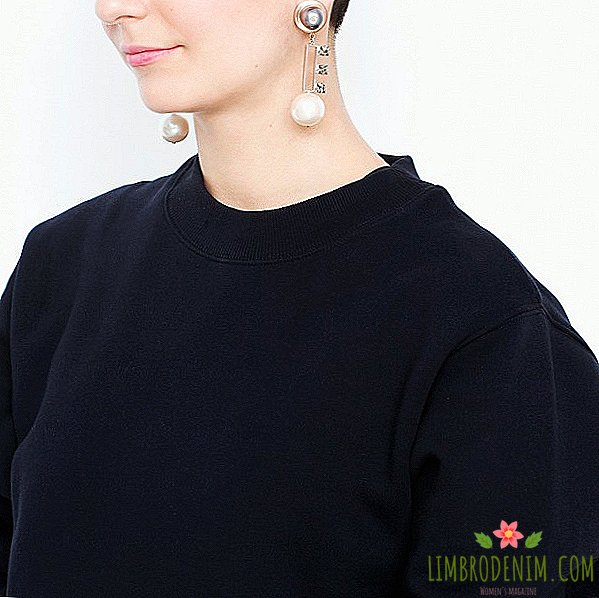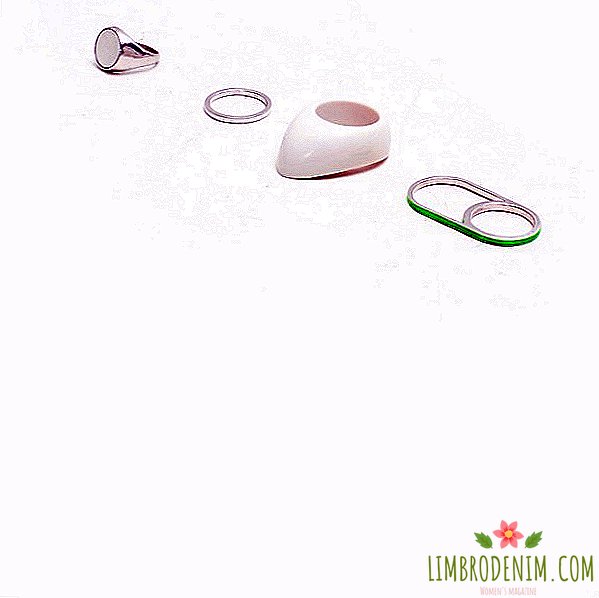How I moved to Iceland and decided to stay there forever
I never thought that I would move to live in Iceland. I was born and raised in Moscow, by the time I was thirty, I managed to build a successful career in the travel industry, and if I planned to move somewhere, I would go to a country with a warmer climate to continue working in my field. But in 2011 at a conference in Iceland, I met my future husband - and after the wedding, two years later, I moved to Reykjavik.

In my acquaintance with the country a storm broke out. It struck me how strong the gusts of wind can be and how quickly the weather can change. I have been in many countries with a changeable climate, but I have not seen anything like this before. Surprisingly, in the coldest month of the year the temperature fluctuates around zero, and the city rarely falls below minus five, thanks to the Gulf Stream, which washes the island in the middle of the Atlantic Ocean. I used to think that Iceland was frosty and snowy, but it turned out that it was not so: a lot of snow could fall in a day, but it would immediately be washed away by rain. In the summer of not hot - the days when the air warms up to 18-20 are equal to the national holiday, and no one works.
My future husband and I decided that before moving to Iceland, first I would come for two or three months to see how they live here. It was clear to both of them that the contrast between Moscow and Reykjavik was enormous, so it was difficult to decide without a trial balloon. The question of whether my husband moved to me in Russia did not stand: he was in Moscow and he liked everything, but he was not ready to live here.
I spent the summer of 2012 in Iceland and then finally decided that I wanted to move here. During this time I managed to travel around the country, see how Icelanders live, and begin to understand their mentality and attitude to life. My husband's family accepted me very well, and since the families in Iceland are large, there was no time to be bored. Icelanders usually spend a lot of time with their loved ones - in the summer, for example, traveling with tents out of town. There are a lot of campsites, and there everything is equipped for a comfortable stay in nature: shower, toilet, barbecue facilities and kitchen. They like to rent houses and spend weekends in a friendly company of fifteen or twenty people.
There was a feeling that everyone has a well-established life, and you are standing in front of an open box with LEGO, and you just have to build it
Of course, one thing is to spend a couple of months in Iceland, and another is to start building a new life. I was reassured that I could come to Moscow at any time: Iceland is not the end of the earth, as is customary to think. From Reykjavik to Oslo, Copenhagen or Stockholm, you can fly in 2.5-3 hours, and then it’s about two hours to fly to Moscow.
By the summer of next year, I closed all work affairs and after the wedding in Reykjavik I finally moved to Iceland. It was not easy to decide, but the fact that I was going to my beloved husband really helped. In the first few months, when I began to immerse myself in local life, it was unusual to realize that everything had to start from the very beginning: to look for a local social circle (there were few Russians here), to work, to get used to the absence of some products, to find “our own” a hairdresser and a manicurist and so on. There was a feeling that everyone had a well-established life, and you were standing in front of an open box with LEGO, and you just had to build it. Perhaps, if I had moved ten years earlier, I would not have noticed all these nuances, but now I felt them fully.
Immediately I had to apply for a residence permit. According to local rules, if you marry an Icelander, then you live for three years on annual residence permits, then you get permanent resident status and in parallel you can apply for citizenship. Three months later I received a card in the mail - a document confirming my legal residence in Iceland and my stay in the Schengen zone. Everything turned out to be not as difficult as I thought.
In Iceland, fertile ground for innovation: the creative spirit of Icelanders, backed up by a good IT school, produces mostly successful startups. Some of them are financed by local investors, some by venture funds of Silicon Valley. Since the summer of 2014, I have been working in the Dohop flight ticket meta-search engine, which for more than ten years has essentially ceased to be a startup, but has not lost its unique spirit. My task is to attract partners: online travel agencies, airlines. Technology is a new field of activity for me, so here I had to start everything from the very beginning, although, of course, past connections help.
Icelanders start working no later than nine in the morning, and in the summer of that and earlier - from half past seven. The sooner you start, the sooner you finish: the average working day in the country is small, so many are free already at four in the afternoon. If the company asks to stay after work, then, firstly, it remains at your discretion and, secondly, you are entitled to double payment. Everyone tries to keep a balance between work and personal life, and before Christmas and New Year often give one or two unplanned days off. Or, as it was in the summer, they let go early to watch the match if the Icelandic national football team plays at the European Championship.
Icelanders are very calm people: it’s difficult to imagine a situation that would put them out of themselves, they believe that everything will “resolve itself”. At first, my colleagues wondered why I was starting to worry when, for example, the deadline was on the nose, and our developers had not even looked at the task. They calmly said to me: “Well, yes, we are unlikely to do this until tomorrow, but we will most likely be finished next week, let them not worry.” And this extends to many aspects of local life.
Icelanders are very calm people: it’s hard to imagine a situation that would put them out of themselves, they believe that everything will “resolve itself”
Even after moving to Iceland, I was surprised that in the summer almost the whole country goes on vacation for a month, or even six weeks. This usually happens in July-August, so the office is half empty. After the Moscow realities, when it was an impermissible luxury for me to go on vacation for two weeks without letting go of the phone, constantly checking email and receiving calls, it was amazing. But, as practice shows, the land does not stop because of this, people return to work rested and satisfied and continue to work.
Iceland has one of the highest tax rates. They start with 37% for minimum wages and grow depending on the level of income. Living in Iceland is quite expensive, even compared to Moscow. Products made in the country are not cheap due to the cost of raw materials and labor. Much is imported, by sea or by air: most of the perishable goods, such as fruit, for example, get to the island by plane. The new car in Iceland is twice as expensive as the exact same in Moscow. A liter of gasoline today, when the Icelandic krone is strong enough, costs 1.7 euros, or 109 rubles. The shocking price for a person who moved from a country where a liter of gasoline cost less than thirty.
Local medicine is considered to be free, but for each doctor's appointment you need to pay from ten to thirty euros. Plus, you need to pay the full cost of medicines, until the total amount for the year reaches 2,780 euros. After that, insurance is connected, which can cover up to 90% of the cost of drugs or operations. So, I had a surgery for less than 10% of the total cost: it cost 4,100 euros, I paid 250. And yes, you do not buy medical insurance, such as in the USA, but you simply receive it from your own taxes, but everything same In addition to insurance, the union can help with reimbursement or payment of medical expenses if you are a member and pay contributions. The union also ensures that the level of your salary is not lower than the market average, in accordance with your education and work experience. You can always turn to him for advice if suddenly it seems that the employer does not respect your rights. Although there were no such cases with me or with any of my friends.
Icelanders are incredibly proud of their national language: it is one of the oldest in the world and has survived to this day with minor changes. He must learn to get citizenship. At first it was very unusual for me - you don’t understand what it is all about, and you can’t even guess. Now everything is much simpler: although I do not speak Icelandic, but at least I understand the general essence of the conversation. The second language in Iceland is English: more than 90% of the population speaks it, so knowing it, there are no problems in everyday life and at work.
A pleasant surprise was the Icelanders themselves. This is a nation of very beautiful people: men, as a rule, look after themselves, and icelanders are very confident in themselves. The feminist movement is active here, and, in fairness, Iceland is one of the few countries where men and women have roughly equal rights.
Icelanders are passionate about sport. In the summer it is a bicycle, hiking, running, golf. In a country that seems to be the least suitable for golf, there are more than a hundred special fields, and in summer, when white nights come, you can play around the clock. Thousands of routes have been developed for hiking and trekking, from simple day trips to mountain routes that take three to seven days or more. I have never been a fan of hiking, but I really got into it after going to the crater of an extinct volcano. Here, too, by the way, there are more than 100 volcanoes, and about thirty of them are active.
Iceland is one of the few countries where men and women have roughly equal rights.
It was easy to get used to the Icelandic mentality, probably because it is close to me: Icelanders will never climb into your soul, which is not expected of you either. They will be happy to help if you ask, but they will not impose themselves. If you met someone at a party and you had fun in the company, this absolutely does not mean that you have become friends and continue to communicate.
I think you need to go to Iceland to see the unique nature: glaciers, waterfalls, geysers, volcanoes, cosmic landscapes, black beaches, tectonic faults. All this is compactly assembled, and in the summer for a week you can drive around the whole island along the ring road. It is better to go in July and August, when the warmest weather is standing, everywhere is green, and in the beginning of July lupine fields bloom - the scenery is unforgettable. All mountain roads are already open, natural attractions can be estimated in all its glory. It should be borne in mind that at this time comes the largest number of tourists - this means not only a large number of people, but also expensive hotels, flights and car rentals.
If you want more freedom, then you should take the car. Traveling in Iceland by car is a pleasure: the roads are excellent, there are signs everywhere. True, there are long areas where there are no gas stations or other amenities, so you need to take care of everything in advance. The main attractions can be seen on the tour buses that go from Reykjavik - if you do not want to take the car, then this option is for you.
In the meantime, I plan to learn Icelandic and get citizenship. Icelandic is not needed in my daily work, but if you want to build a career further, then you need to speak the language of the country in which you live. Under local law, I can already apply for a passport, but for this I still do not have enough knowledge of the language - I have to pass an exam. Even if we move to another country in the future, I think Iceland will always be a second home for me - I became attached to it so much.
Photo: ATGimages - stock.adobe.com





